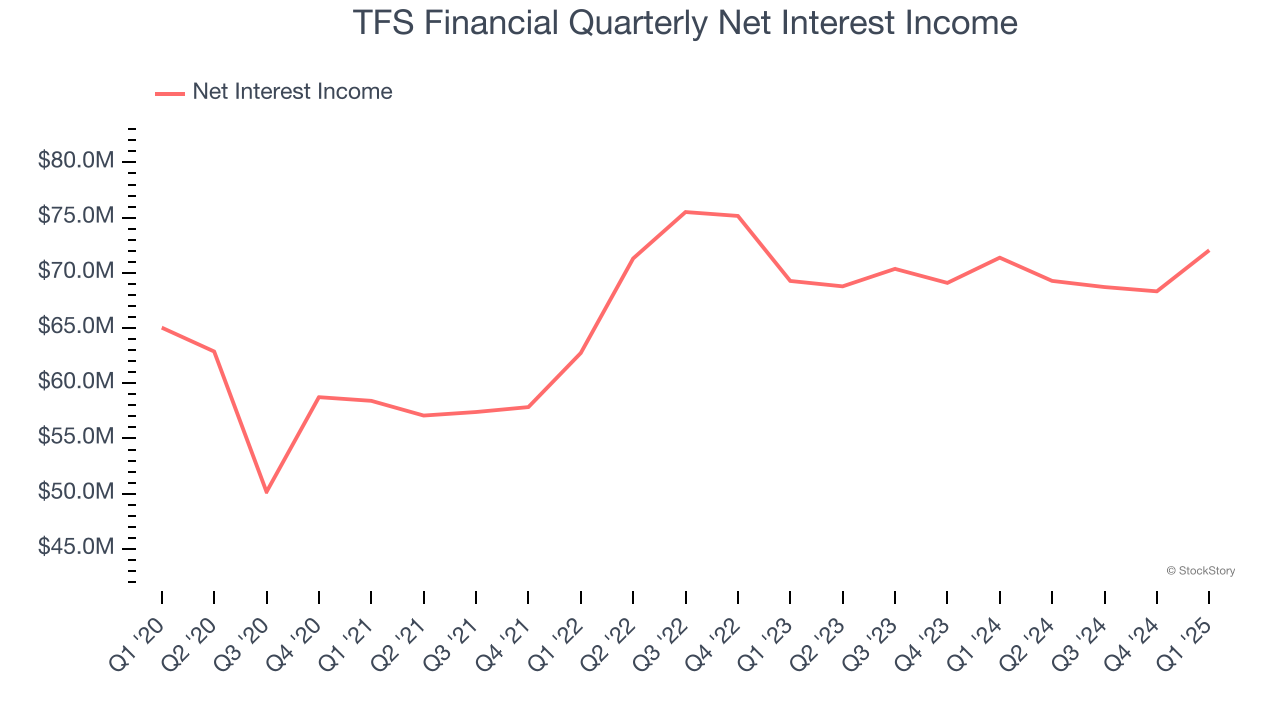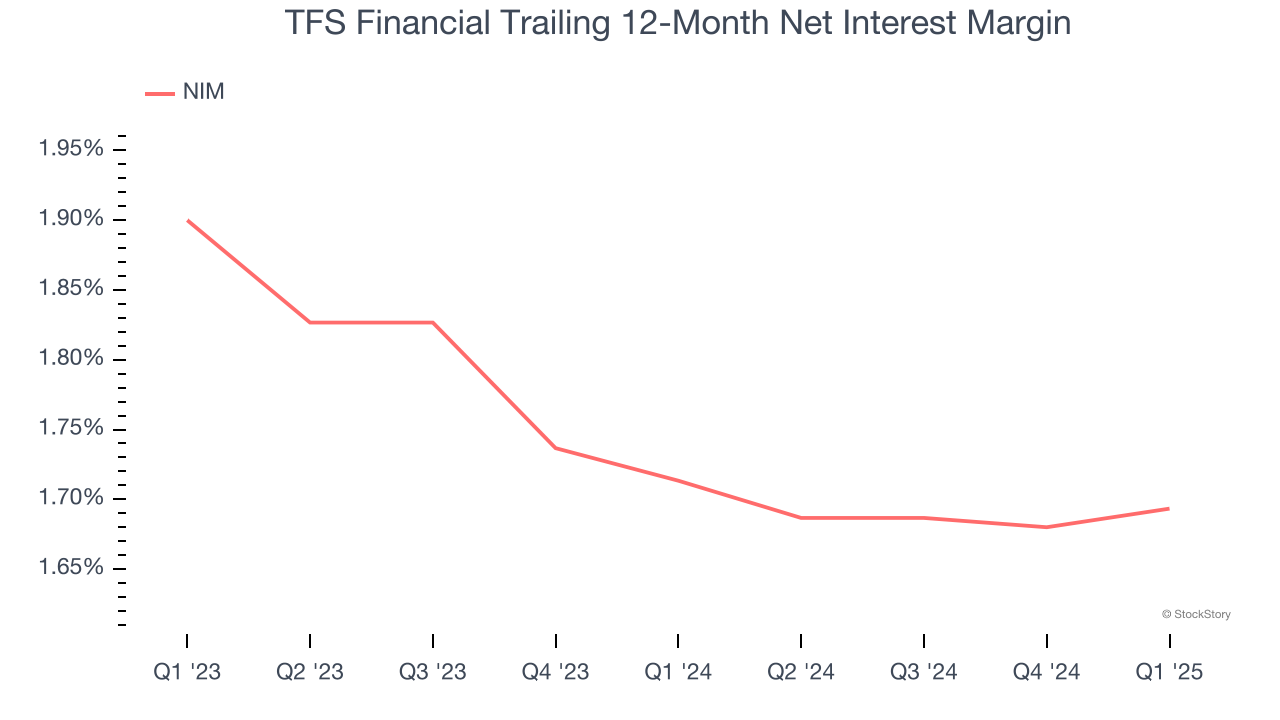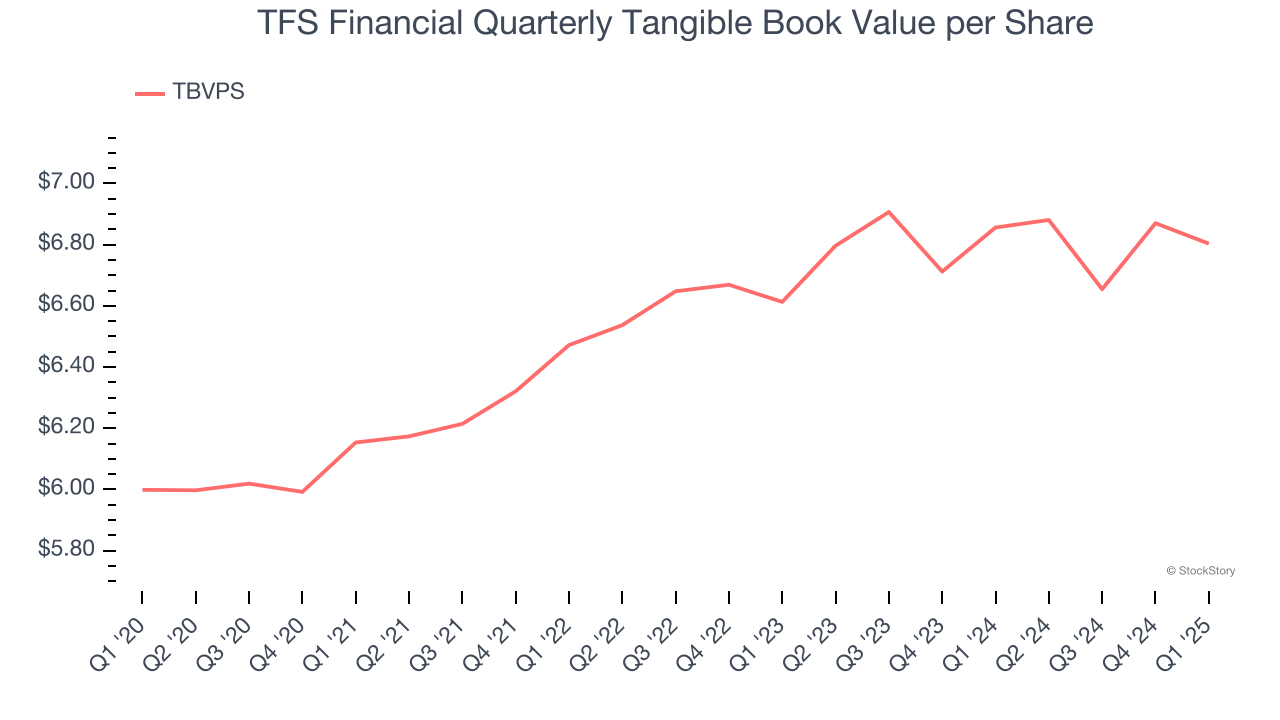
TFS Financial trades at $13.37 and has moved in lockstep with the market. Its shares have returned 7.7% over the last six months while the S&P 500 has gained 5.6%.
Is now the time to buy TFS Financial, or should you be careful about including it in your portfolio? Get the full breakdown from our expert analysts, it’s free.
Why Do We Think TFS Financial Will Underperform?
We're cautious about TFS Financial. Here are three reasons why there are better opportunities than TFSL and a stock we'd rather own.
1. Net Interest Income Points to Soft Demand
Net interest income commands greater market attention due to its reliability and consistency, whereas non-interest income is often seen as lower-quality revenue that lacks the same dependable characteristics.
TFS Financial’s net interest income has grown at a 4.9% annualized rate over the last four years, worse than the broader bank industry. Its growth was driven by an increase in its outstanding loans as its net interest margin, which represents how much a bank earns in relation to its outstanding loan book, was flat throughout that period.

2. Low Net Interest Margin Reveals Weak Loan Book Profitability
Revenue is a fine reference point for banks, but net interest income and margin are better indicators of business quality for banks because they’re balance sheet-driven businesses that leverage their assets to generate profits.
Over the past two years, we can see that TFS Financial’s net interest margin averaged a poor 1.7%. This metric is well below other banks, signaling its loans aren’t very profitable.

3. Substandard TBVPS Growth Indicates Limited Asset Expansion
Tangible book value per share (TBVPS) serves as a key indicator of a bank’s financial strength, representing the hard assets available to shareholders after removing intangible assets that could evaporate during financial distress.
TFS Financial’s TBVPS increased by a meager 2.5% annually over the last five years, and its recent performance paints an even worse picture as growth has decelerated a bit to a weak 1.4% over the past two years (from $6.61 to $6.80 per share).

Final Judgment
We cheer for all companies supporting the economy, but in the case of TFS Financial, we’ll be cheering from the sidelines. That said, the stock currently trades at 1.9× forward P/B (or $13.37 per share). This valuation tells us a lot of optimism is priced in - we think there are better stocks to buy right now. We’d recommend looking at one of our top software and edge computing picks.
Stocks We Would Buy Instead of TFS Financial
Market indices reached historic highs following Donald Trump’s presidential victory in November 2024, but the outlook for 2025 is clouded by new trade policies that could impact business confidence and growth.
While this has caused many investors to adopt a "fearful" wait-and-see approach, we’re leaning into our best ideas that can grow regardless of the political or macroeconomic climate. Take advantage of Mr. Market by checking out our Top 5 Strong Momentum Stocks for this week. This is a curated list of our High Quality stocks that have generated a market-beating return of 183% over the last five years (as of March 31st 2025).
Stocks that made our list in 2020 include now familiar names such as Nvidia (+1,545% between March 2020 and March 2025) as well as under-the-radar businesses like the once-small-cap company Comfort Systems (+782% five-year return). Find your next big winner with StockStory today.





